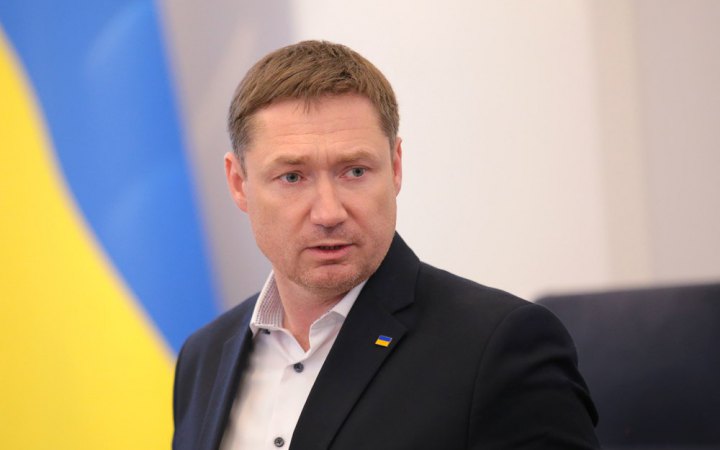“We hope that some of the population will stay in the region. This is human potential, and it is important to us that people find their homes. Because we understand that it is impossible to rebuild completely bombed cities in a short period of time,” Kozytskyy added.
LB.ua talked to him just over a month ago. Usually, we do not repeat interviews so often, but this is a special situation. Lviv region has long been considered one of the safest places, but today it was shelled again. Therefore, the issue of security in this part of western Ukraine, where, according to mobile operators, there are about 450,000 internally displaced people, worries a lot of people.
You can not only read this interview but also listen to it — podcast available: “The Hour with Sonya Koshkina” program from “Radio Ukraine”, speaking from Prague.
“There are no safe places not only in Ukraine but also in the world, including Europe”
Let's start with a general assessment of the situation in the region?
Of course, we do everything to make Lviv safe. But, unfortunately, the country is at war. I have to say, there are no safe places not only in Ukraine but also in the world, including Europe. There were four hits during the penultimate shelling of Lviv, one of which was direct — to a car service station, four civilians were killed. The anti-aircraft defense worked, but unfortunately, we have four hits.
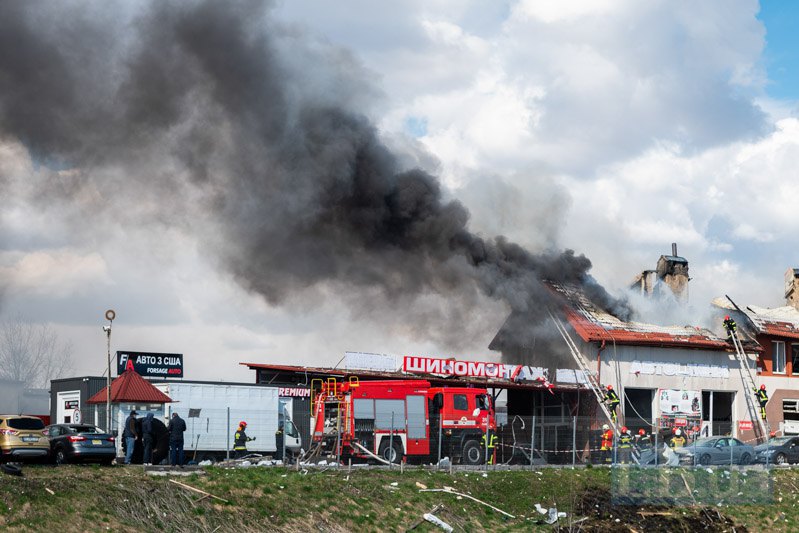
How different is the situation in the region from that in the city?
It's no different. Everyone is working for victory, everyone in his place. There is a mobilization of the population and the formation of territorial defense. We are trying to launch the economy, and we have good results. We also try to help the displaced citizens, which there are about 450,000 people still on the territory of the Lviv region.
A month ago you mentioned a lower number — 250,000. Is it growing?
The number is dynamic. When we spoke of 250,000, it was the number of people officially settled by the military administration. Today, 318,000 people have been settled by the military administration, of whom 265,000 remain in these places. But if we take the data of the mobile operators, there are about 450,000 people are additionally on the territory of the region.
Am I correct in assuming that the new wave of internally displaced persons is people coming from eastern Ukraine?
Yes, it’s the eastern regions.
Camps for temporarily displaced people are being set up in the region. The Poles are very active in helping. Tell us more about them, how many people are they designed for?
This is a common project between Ukraine and Poland. Many thanks to the Republic of Poland for its help. It was decided first of all to arrange such a small town in Lviv. One of the locations has already been chosen, the camp is set up. We started with 360 places, that's 88 small houses for displaced families. The next two locations will be opened in the city of Lviv within a month. On the Polish side, the capacity of the construction of such camps is about 5 thousand places per month. Poland says there can be up to 200 thousand such places. Lviv region is a pilot project, the first people are settled. We found a location that fits the spirit of the Lviv region and the city of Lviv — Stryiskyi Park. The next two locations will be in other areas, but also in Lviv.
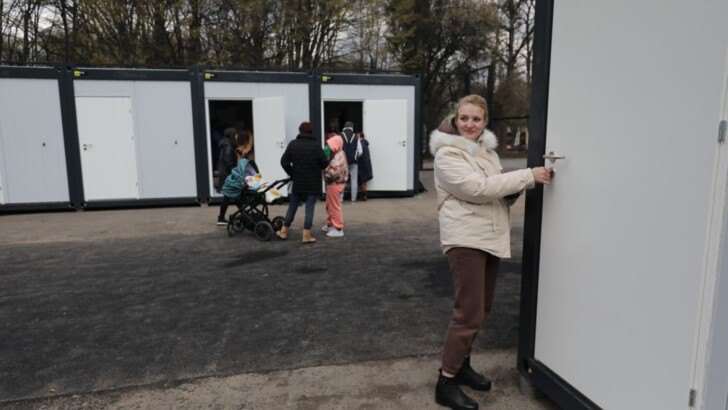
We also work with other foundations. There is one of the English foundations that can help the Lviv region with the placement of cottage towns. We found another location, perhaps it will be the city of Stryi. We are trying to arrange this town so that people who will be settled could be employed at industrial enterprises. This location will hopefully be up to 2,000 settled people. But we're just working on it.
For how long are these settlements designed for? In summer there may not be a problem, but are they suitable for living in the cold season?
It's not so warm now in Lviv, these townships are adapted for living in cold weather, but we hope all the same that this is temporary housing that will serve its purpose for six months, and then it can be used for construction crews who will rebuild the bombed-out cities of eastern Ukraine.
You also recently reported that in the Lviv region they are beginning to buy back houses that are almost commissioned or suitable for refugees. Unfortunately, I could not find any details. What kind of project is this?
This is a project of the Presidential Office to settle temporarily displaced people. We are collecting information on the number of finished or nearly finished apartments that have been commissioned for the priority resettlement of residents. We found more than 1,200 apartments that could theoretically be purchased by the government of Ukraine. At the moment, such lists are being formed throughout Ukraine; there will be set limit prices at which the state could buy housing from developers for the needs of temporarily displaced people. It would be ideal to resettle near businesses so that people have jobs as well.
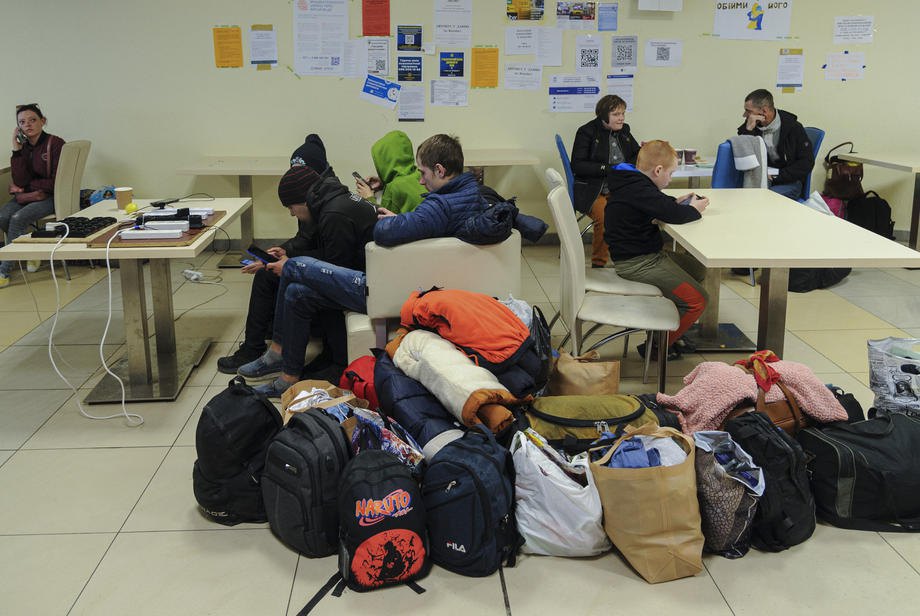
Is this a home that was not previously purchased?
Yes.
Is the money for this allocated from the local or state budget?
These are funds from the state budget.
Is there an expectation that people who settle there will stay to work and live in the region for a long time?
We hope that some of the population will stay in the region. This is human potential, and it is important to us that people find their homes. Because we understand that it is impossible to rebuild completely bombed cities in eastern Ukraine in a short period of time.
What is the procedure? A person comes to the Lviv region, for example, from the east or the Kyiv region, how can he prove that his house was destroyed? In the current situation, it is almost impossible to do it with documents and facts, apart from rare exceptions. How does this procedure proceed, from the point where the person says he or she has nowhere to go back to the point where he or she may have moved into the kind of homes you just talked about?
Our priority is to put a roof over people’s heads. And we do that as best we can. We settle them in kindergartens, schools, and specially equipped gyms. The first thing to do, of course, is to register as an internally displaced person. Even out of the 265,000 who are now being housed and resettled by the military administration, only 145,000 have officially passed the registration procedure. Only half of them have officially registered. To apply for benefits from the state, which are now available, or for assistance from UN funds, for reimbursement of expenses on food, or resettlement, of course, you have to officially register. That will be the first step.
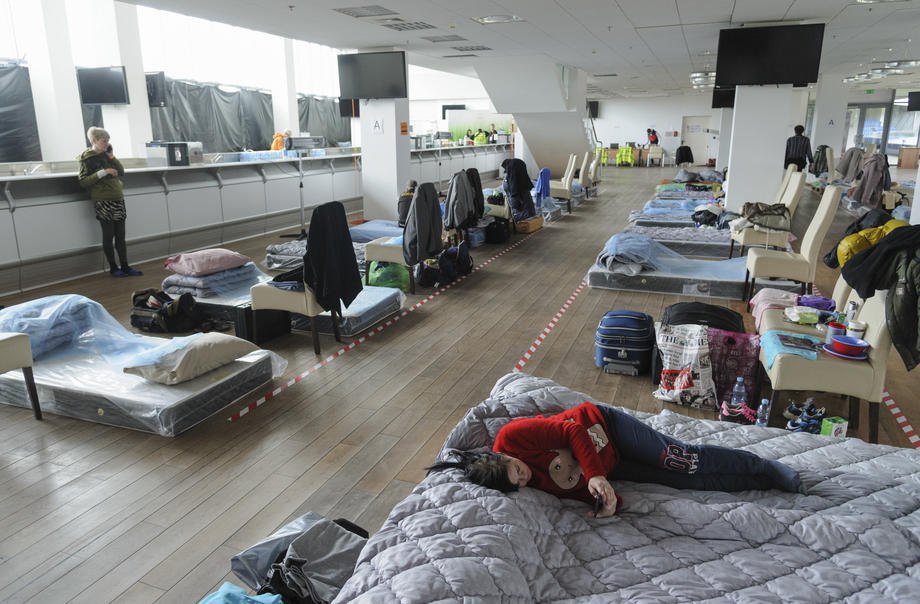
“Two resolutions of the Cabinet on the possibility of compensation to internally displaced persons 2200 hryvnias were issued.”
There was information that people who take in internally displaced persons would be able to receive a small compensation from the state, at least for utilities. Did this program work in practice?
To take part in this program, it is necessary to register internally displaced people and those who provide housing to such people. After that, the compensation per person per month is 500 hryvnias.
And how many people in the Lviv region have taken in internally displaced persons?
This number I do not know because the registry is maintained by the Ministry of Regional Development. I can't answer that question.
You mentioned the UN and the Red Cross. During our last conversation, you said that you would like to see more activity by these organizations in the region. Has the situation improved?
The situation has changed dramatically in the last two weeks. If we take the two UN funds — World Food Program and HCR, which deals with refugees, then thanks to the Department of Social Protection, and I thank my employees, a mechanism was created, which was worked out within the region, and then this mechanism was transferred to the whole Ukraine. Two resolutions of the Cabinet on the possibility of compensation to internally displaced persons 2200 hryvnias for the fact that they have the status of internally displaced persons were issued. 2220 hryvnias per person, up to three persons in a family, for food per month. These two programs alone will cover 700,000 payments to internally displaced persons in Ukraine. This project started in the Lviv region.
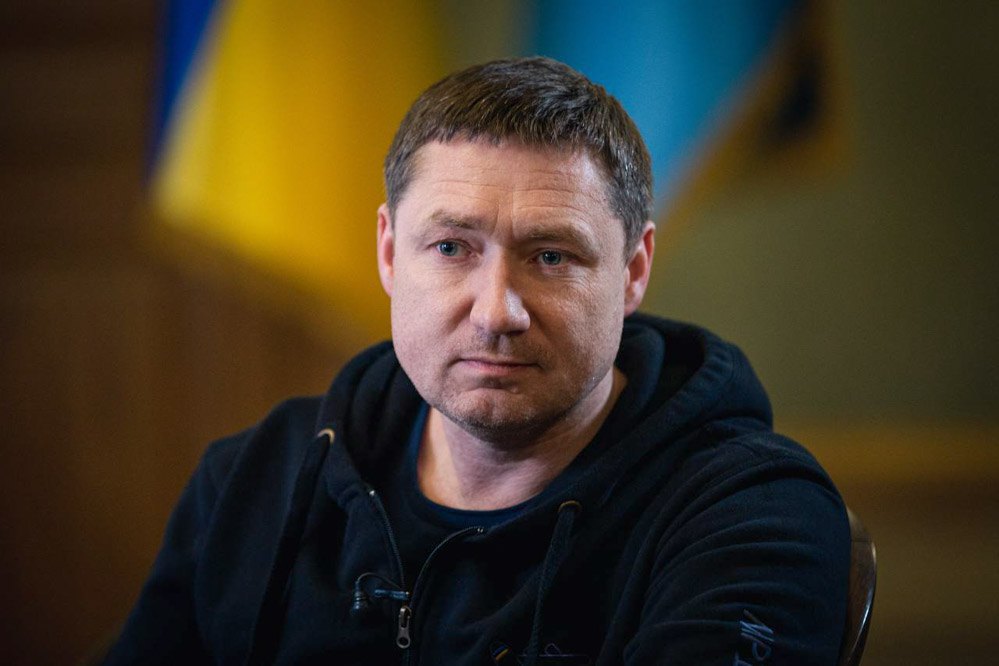
The Global Citizens Fund recently raised 10bn dollars for Ukraine. The point is that this money should go to humanitarian programs of UNICEF and the Red Cross. Do you feel this support, including financial aid?
We met with representatives of both the Red Cross and UNICEF. In my opinion, UNICEF has been actively involved in the aid process. We have assistance for children in essentials, as well as providing priority needs. Speaking of the Red Cross, we met with them. According to them, their main activities are concentrated in eastern Ukraine, within the areas where military operations are taking place. We offered to do some projects together with the Red Cross Committee and give them custody of a couple of geriatric boarding houses and orphanages. We will see how actively they get involved in the process.
Let's talk about the economic component and the returning people. So far, a lot of people who left the city before are returning to Kyiv, and not only men. What about the Lviv region?
1.7 million people crossed the border in the Lviv region alone. During this time, 177 thousand people also returned to Ukraine through the border in the Lviv region.
Taking the economic situation into account, the Lviv region exceeded the regional budget in the first quarter. And this is a very good indicator for the country in the war. For our part, we are trying to mobilize the economy and the regional budget to help businesses, not only businesses, but agriculture and those people who host internally displaced people. We've developed three support programs that we've launched. So I hope that this will help mobilize also the economic resource.
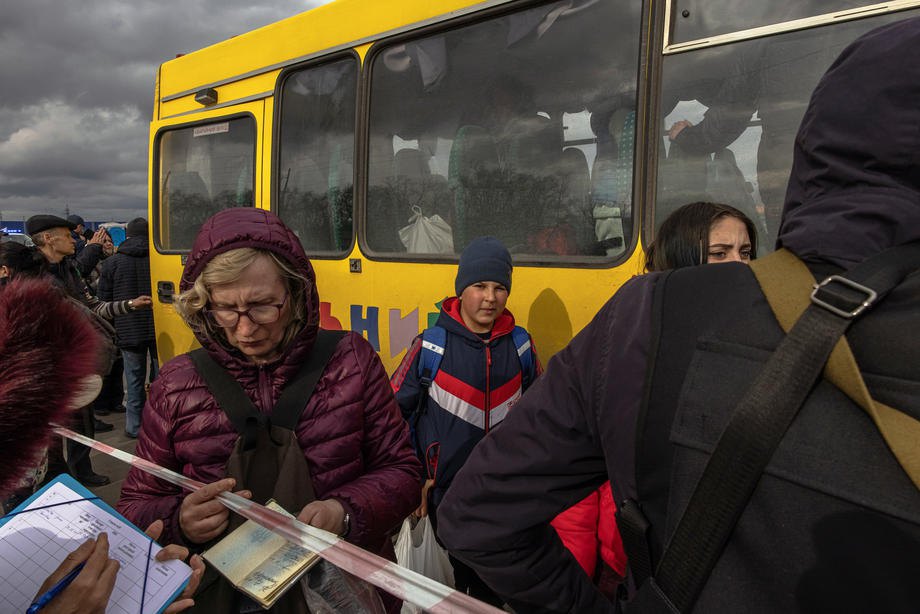
Obviously, the exceeding of the budget is connected with the fact that many enterprises paid taxes in advance when the war began. And also because the region's customs office is in operation.
These two factors that you mentioned are more about the state budget. The regional budget is formed more from taxes on personal income and the unified social tax, which is paid by individual entrepreneurs. Therefore, respectively, the Lviv region has always been interesting because there are many small businesses and entrepreneurs and very active citizens. So we are grateful to them for continuing to pay taxes during the war and keeping people employed and hiring new people. And thanks to over-taxing, the Lviv region has an over-budget.
How many of the registered internally displaced people have already been employed in the region, and under what conditions?
If we talk about internally displaced people, unfortunately, their employment activity is not very high. They are probably in the process of deciding whether to stay here or return to their homes. But since the beginning of the war, more than a thousand new jobs have been created thanks to the relocated businesses.
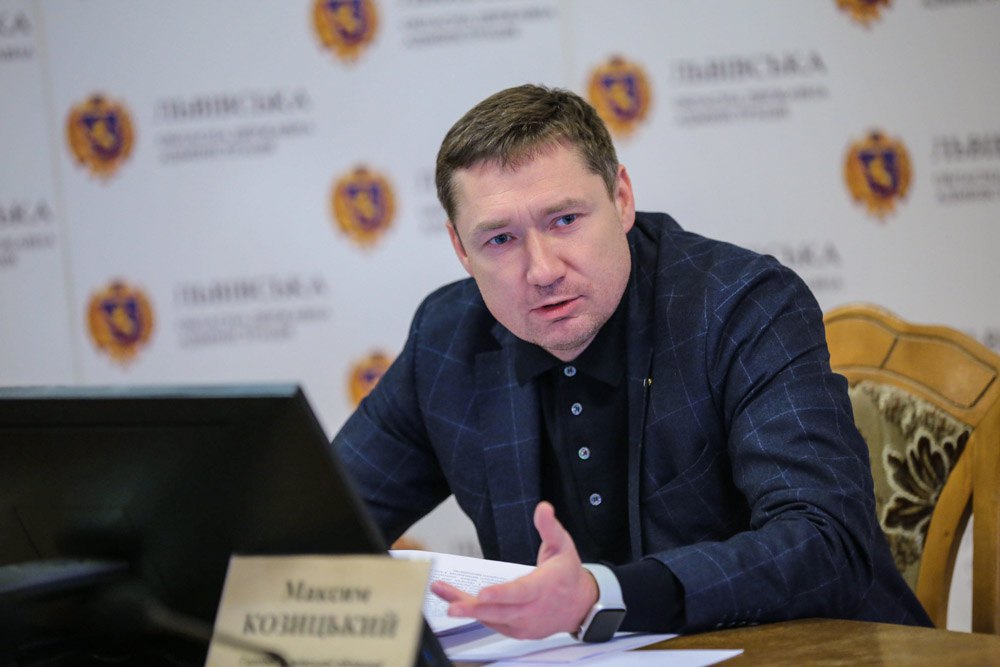
“84 enterprises have already moved to the Lviv region, 35 more are in the process of moving”
Four weeks ago you talked about 160 applications for the relocation of large enterprises. How many businesses have been relocated during that time, which ones specifically, and how do they work today?
Currently, we already have over 400 applications for relocation, but these are applications to find a place where businesses can start production. If we take those that have already relocated — there are 84 of them. Another 35 are in the process of moving.
There are some interesting cases that I am happy to talk about. Forbes magazine quotes the head of my investment department, who is less than 30 years old. This is a guy whose team is 22 to 32 years old working through these applications. And they managed to relocate the really big enterprises, which, hopefully, will either leave their subsidiaries here or stay in the Lviv region entirely. For example, this is “Pozhmashyna”, which has been relocated. One of the largest mattress manufacturers, a large machine-building company that I just don't want to name, because the owners and directors ask me not to.
You mentioned the sowing season. How is it going now in the Lviv region? Because in the east and south, unfortunately, it is quite difficult.
We have a sowing season according to plan, supplied with fertilizers and fuel, we normally entered the sowing season. Everything that can be sown should be sown. On our part, we have adopted a regional program to support the agricultural sector, it is targeted support for more niche things — help with seeds, help with berry farming, horticulture, animal farming development, as well as partial compensation for loans that were issued in previous years, and the ability to obtain new small loans for machinery.
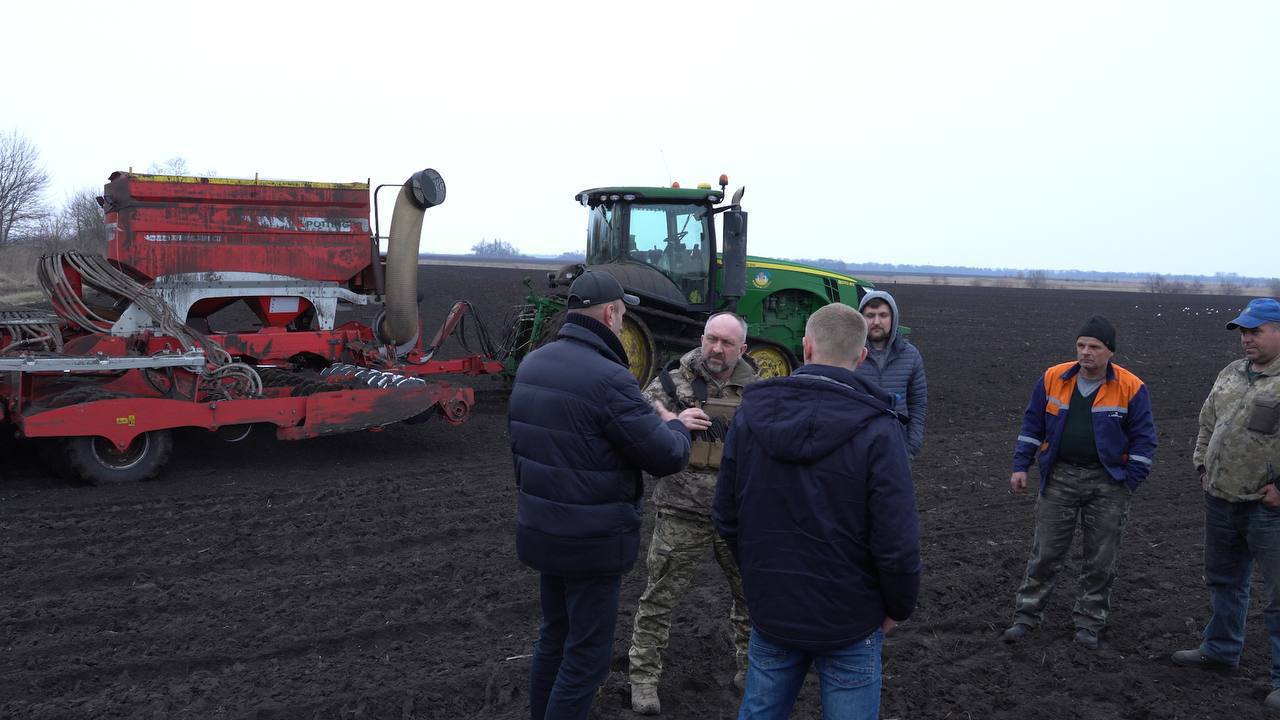
So now you are taking over some of the burdens that the east and south had?
I think that on our part we need to sow everything we can and support agricultural producers. We do not substitute concepts and hope that all areas will be sown where possible, including in the east, because Ukraine has always been a great power, which has provided a significant share of the food market of the world. I hope that we will return to this market and come back with added value. I wish that in addition to sowing everything, we would also start processing and producing new types of food products. That is our plan.
“Each of us must concede in part our interests, our living space, and do everything we can to make everyone who comes here feel at home”
What is the relationship between the local population and the people who were forced to temporarily leave their homes? Lviv has become the refugee capital of Ukraine, but as time passes, it is clear that the residents are getting tired of such an influx of people who need help.
I guess the situation is that each of us must concede in part our interests, our living space, and do everything we can to make everyone who comes here feel at home. Now I do not feel the tension on the streets, in the places where the displaced people are housed, or in the communication in the stores. People are mobilized for the sole purpose of defeating the enemy.
According to Roman Donik, a well-known volunteer, there are cases in Lviv, perhaps artificial and occasional, when elderly displaced people who speak russian are refused service at a refugee center and other social institutions. Are there such conflicts?
What is interesting and strong about Ukraine is that everyone can say what they want. And if there are such sayings, it probably shows that we are a big democratic country. I guess there are different opinions, but Lviv is open, first of all, to help, open to people who come here. And such things will probably happen, nothing is surprising about that.
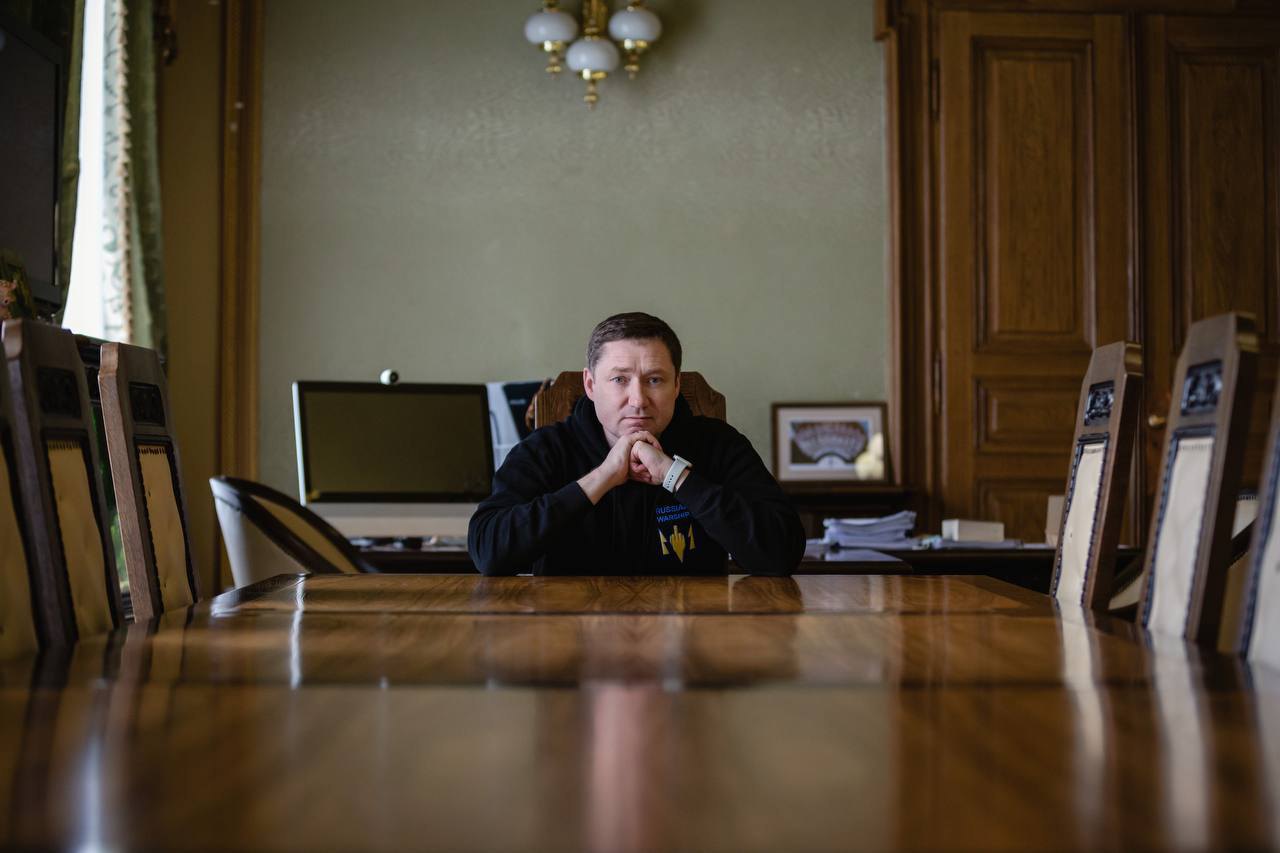
When I was still in Lviv myself, I talked to a high-ranking official who assured me that the city was not threatened by anything because of its proximity to Poland (a NATO country). Like, there is nothing to be afraid of, because the russians are clumsy — they will shoot at Lviv and accidentally hit NATO, so they won't do it. Already after that, they hit the Yavoriv training range, and shelling continued. How do you explain such impudence?
First of all, we are a humanitarian hub. We do everything in our power to make people feel safe here. Are further attacks on Lviv possible? Of course, they are possible, just like at any other place in Ukraine. Our task is to provide people with faith, faith in the state, faith in the army, and faith in being here. We try to do this in any way possible. Implementing joint projects with the same IT cluster and the police, which adds to safety on the streets.
You mentioned that Lviv is almost the main humanitarian hub. How has the amount and nature of humanitarian aid passing through you changed over the past month?
During the war, more than 128 thousand tons of humanitarian cargo passed through the Lviv region. This is 50 percent of all humanitarian cargoes received in Ukraine. Currently, the flow of humanitarian cargoes is decreasing. At first, there was a caution about helping Ukraine, then it became a trend. Fortunately, there are states, such as the Republic of Poland or the Republic of Lithuania, that have been helping from the early days until now in enormous amounts. Some states are joining in the aid, and that's great, too. But unfortunately, the amount of humanitarian aid has decreased in the last two weeks.
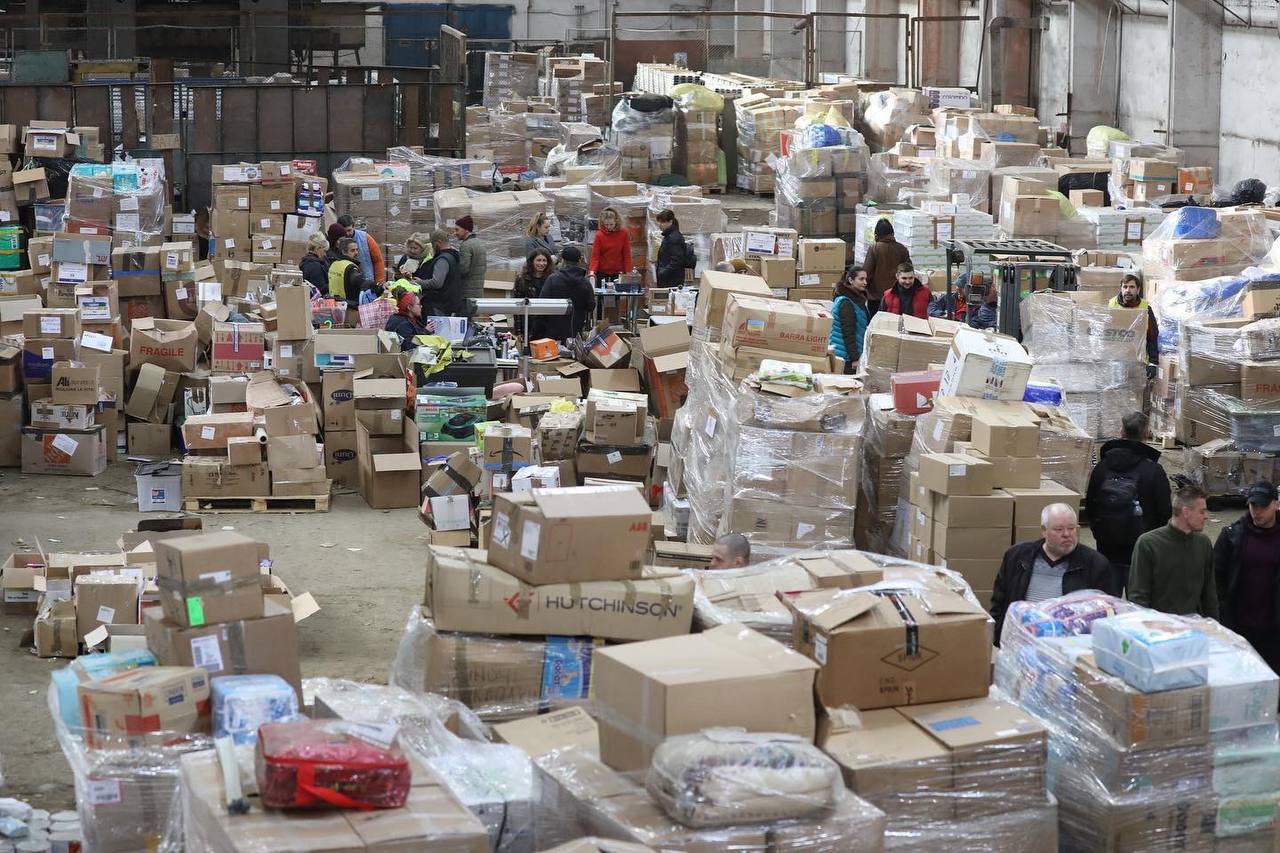
What would you say to Ukrainians forced to leave the country and dreaming of returning?
We remember you. We will do everything in our power to bring you back to a peaceful state after our victory. We will do everything in our power for Europe to be in Ukraine. Come back, we are waiting for you.









